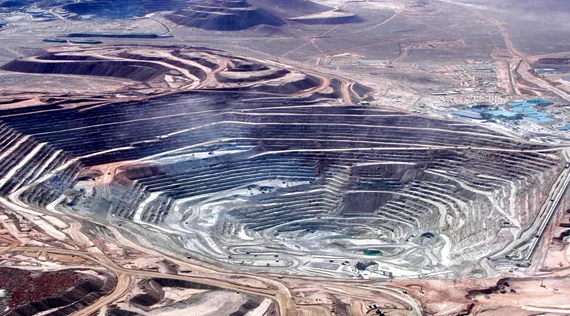
SEATTLE (Scrap Monster): Toxic gold mining along rivers crossing the British Columbia-Alaska border threatens critical ecosystems and the sovereign rights of Alaska Native communities.
At least eight proposed and operating mines dot the Taku, Stikine, and Unuk Rivers – home to some of the largest and most productive remaining salmon habitats in the world. This mining is happening without the free, prior, and informed consent of Alaska Native communities who live and fish in these shared wetlands. We are representing a group of 15 Southeast Alaska Tribes that are fighting for their rights before the Canadian government and an international commission on human rights.
Gold mining, which is recklessly underregulated in Canada, produces extremely destructive waste that can poison nearby water sources. The threatened rivers and streams in the transboundary region of British Columbia support one of North America’s top biodiversity hotspots. In the midst of a global biodiversity crisis, the consequences of contaminating this habitat could not be more dire.
Southeast Alaska Native communities are among the custodians of these watersheds, which have sustained their fisheries and their cultural practices for millennia. By authorizing the mines without seeking their consent, the provincial government of British Columbia is ignoring the rights of Indigenous peoples to protect their traditional territory from toxic mining pollution.
Protecting some of the world’s largest remaining fisheries and salmon runs
Cultural resource and food supply: Fishing is vital to Tribes’ cultural practices. Salmon and eulachon (smelt) harvests also sustain Southeast Alaska Native communities throughout the year, providing food and an economic livelihood.
Supporting biodiversity: Downstream of the current and proposed mines in the Canada-Alaska transboundary region are more than 500 miles of some of the world’s last remaining salmon rivers. They serve as corridors for Pacific salmon and support ecological niches home to grizzly and black bears, moose, and caribou.
Contributing to Alaska’s economy: Recreational and fishing activities in these watersheds contribute millions to Alaska’s economy and to the state’s $1 billion salmon fishery and $1 billion tourism industries—as well as to the food security and livelihoods of tens of thousands of people. Unchecked mining threatens this economy with permanent pollution, for the sake of private corporate profit.
Courtesy: www.earthjustice.org



| Copper Scrap View All | |
| Alternator | 0.40 (0) |
| #1 Copper Bare Bright | 4.21 (0) |
| Aluminum Scrap View All | |
| 356 Aluminum Wheels (Clean) | 0.82 (0) |
| 6061 Extrusions | 0.72 (0) |
| Steel Scrap View All | |
| #1 Bundle | 360.00 (0) |
| #1 Busheling | 380.00 (0) |
| Electronics Scrap View All | |